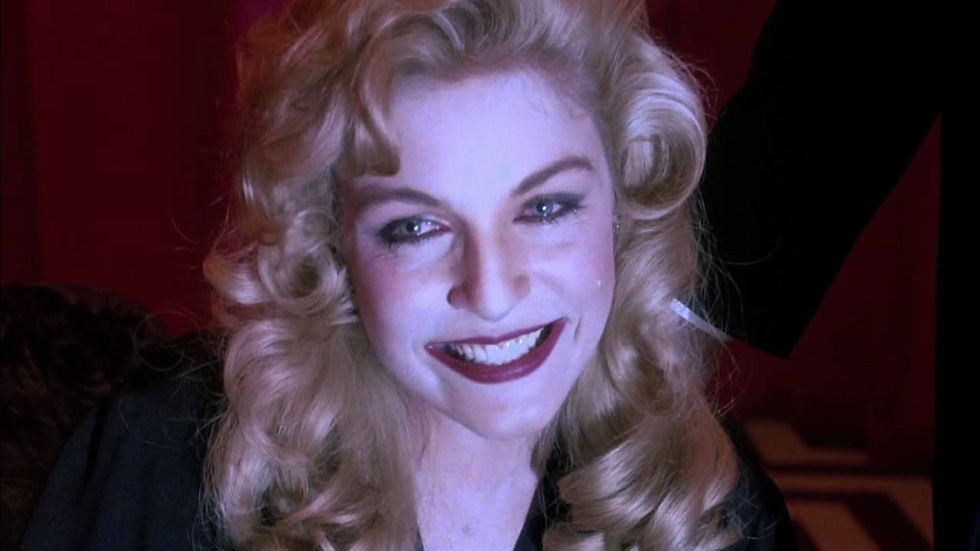D. Lynch 'Twin Peaks' Analysis
- Alyona Kosobokova

- Oct 15, 2020
- 2 min read
There have been an extensive amount of theories, works, and speculations around 'Twin Peaks'.
In October 2019, a blogger with the username 'Rossete' published a 4.5-hour long video (IMO very interesting - link) with, as claimed, a complete analysis of all 'Twin Peaks' series.
Briefly, 'Twin Peaks' though its' symbolism repeatedly indicates that the show is a metafiction: the work is self-aware of its medium.

To explain, in the early 1990s, David Lynch realized that television embraced too much violence purely for the sake of entertainment. He creates a show where good and evil would be balanced, where brutality would not be needed to entertain the viewer, but to demonstrate how important the light (or good) is. Lynch's plan was for the audience to never find out who killed Laura Palmer. The fact of her death should have been enough on its own to draw attention to her story. The intention was not to tell who killed Laura, but who she was - to tell her story. That did not happen, however.
Following the audience’s demand, ABC insisted that the killer of Laura Parmer to be revealed in the second season, so that shifted the balance towards evil. Very soon the audience was no longer interested in the story of Laura, they desired new mysteries, new crimes, new blood. In the final episode of the second season, Bob (evil) possessed the FBI agent Dale Cooper, who originally represented the side of goodness. That symbolized that light submitted to evil. The balance of television yet again has shifted towards darkness.
One of the strongest scenes of the show is the moment when Laura appears in the Red Room flashed by the flickering light at her face, suddenly she begins to laugh and cry. That's the clue.
The flickering light on her face is a television screen. She is coming to the realization that she lived and died for the sake of television. She existed so someone could make a show about it. This absurd 'cosmic' joke that she is a literal TV character who wouldn't even exist had it not been for the show about her own murder and people watching the show.

All the characters (except Cooper, agent Phillip Jeffries, and Ladies with logs) are not aware that they are on the show and simply obey the script. Surprisingly, all along the way, the audience was the main character of the show.

To summarise,
1. David Lynch desires a balance of 'good and bad', 'light and darkness'.
2. Television was (is) out of balance.
3. Twin Peaks was created to fix the problem, and that 'critique' is happening right in the show.
4. Thus, 'Twin Peaks' is a self-aware TV series about the balance of light and darkness.

Comments